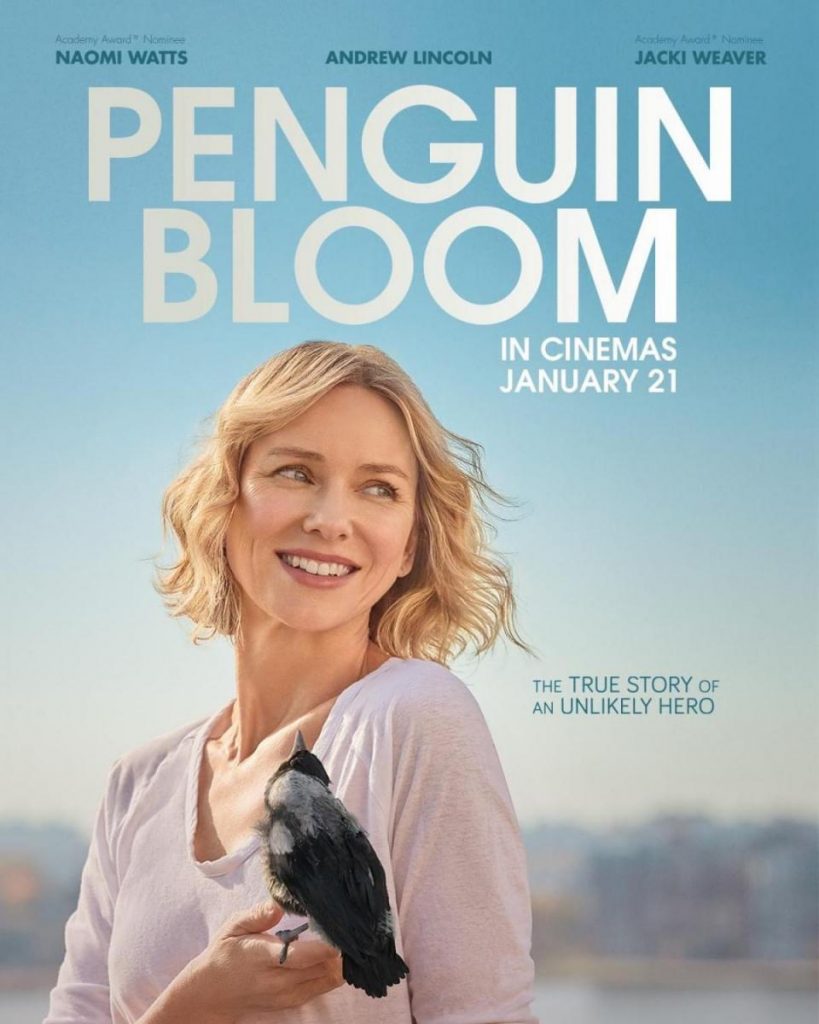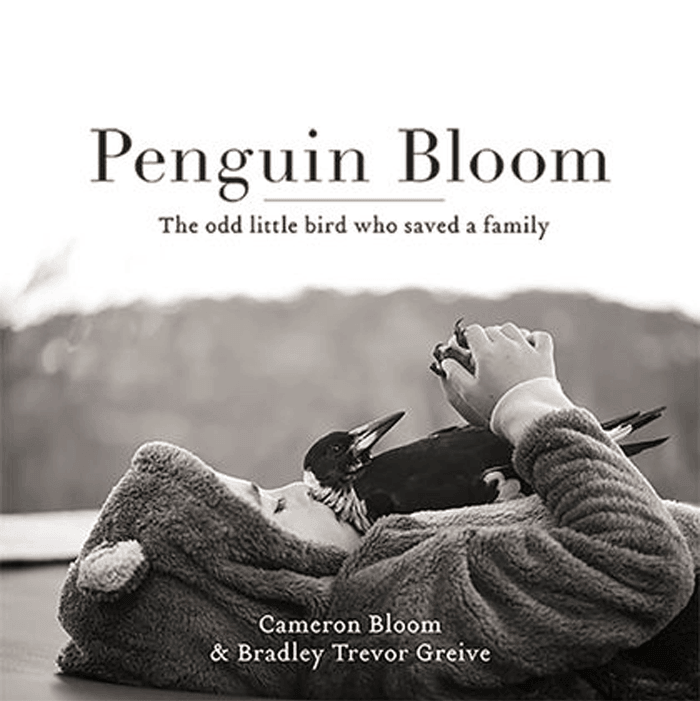
Jason Forbes
Disability Advocate
- Penguin Bloom (2021 film) – 1h 35min – Rated PG.
- Bloom, Cameron. & Greive, Bradley Trevor. (2016). Penguin Bloom: the odd little bird who saved a family. Sydney South, NSW: HarperCollins Publishers Australia

In some ways, Penguin Bloom is a strange title for a movie (and a book!). Watching the movie, I found it had nothing to do with penguins blooming. In fact, the movie had nothing to do with penguins! The title comes from the family whose name is Bloom that had a pet magpie called Penguin – talk about an identity crisis! Hence the title Penguin Bloom. In other ways, the title captures well the disconnection and disorientation that can occur when severe disability strikes a family.

The movie is based on a true story and follows the struggle of Sam (mother) who falls from a balcony while on holiday in Thailand fracturing her T6 vertebrae resulting in partial paralysis. The movie captures well the frustration of Sam as she deals with the loss of mobility and the implications it has for her as a wife, mother and active woman, and the identity crisis that comes with it. Viewers see Sam slowly descend into depression. For this reason, it can be difficult to watch.
The movie also captures well the disconnection between the help that Sam needed, and the help that was on offer. Well-meaning friends and family provided practical supports and distractions from Sam’s condition. However, this only increased the sense of isolation. The support that Sam really needed was to express her own emotions and have her experience validated.
The movie also follows the struggle of Noah (one of three sons) who encouraged Sam up to the balcony where the fateful fall occurred. As a result, Noah struggles with his guilt, and eventually finds healing in being reconciled to his mother and accepting her limitations.
The turning point in the movie is when Sam is left with looking after Penguin (the magpie). This is an important point in the movie as this is the first bit of responsibility that Sam has taken on since her accident other than herself. During this time, she discovers the abilities she does have and slowly regains her confidence. Eventually, she renews her active self by taking up kayaking.
The book doesn’t really chronicle the family’s journey, and therefore only provides a basis for the story that the movie tells. Instead, the book portrays who Sam was before her accident, who Penguin is and the impact that this plucky little magpie had on the family, and the impact that paraplegia had on Sam and her family.
It’s a short read (2 hours). However, there’s enough in the book to reveal where the movie took artistic license with the family’s story.

For example, the movie portrays Noah as carrying the burden for his mother’s accident which is not mentioned in the book. The movie also portrays Penguin as finding her freedom and flying away from the family home. In the book, she remains with the family. These differences, however, do not detract from the portrayal of issues that families face when struck by disability.
I highly recommend this movie and the book that it’s based on. It’s a raw look at acquired disability and the impact it can have on a family. For those in pastoral care, it provides an opportunity to think through what a helpful response would be to some of the issues raised. Especially as those who know the gospel, and to think through what it means for someone with an acquired disability to be reconciled to God, other people, and their place in the world.
